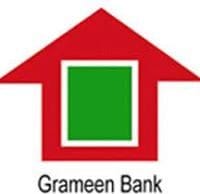Village Phones
The concept of Village Phone is an idea which caught people’s imagination. Grameen Bank members have entered the age of information technology by leasing and purchasing cellular phones. The mobile phones not only create a new business opportunity for the poor, but also bring access to information, market, health and other services to the remote rural areas of Bangladesh. This was a major innovation; placing modern cell phones in the hand of the woman from poorest households in remote villages, something that no telecom operator had dared to do in the past. With Grameen Bank financing a Grameen Bank borrower buys a mobile phone to become the Telephone Lady of the village. She provides the telecommunicatio n services to the village while earning profits for herself.
By the end of 2006, there were more than two hundred seventy-eight thousand village phone ladies who have together taken loans amounting to Tk. 2,397.10 million.
During the year 2006 nearly 91,500 new phones were distributed and connections were provided to as many cell phones in the villages. Grameen Bank, in collaboration with Grameen Telecom (The company which was incorporated as a not-for-profit venture under the companies act of 1994) has made a plan to finance nearly 1,20,000 new phones to its members during the next year.
Zone-wise statistics of village phones financed through the Bank’s lending programme are given in following
|
| ||||||||||||||||||||||||||||||||||||||||||||||||||||||||||||||||||||||||||||||||||||||||||||||||||||||||||||||||||||||||||||||||||||
| installments of Tk. 300.00 over the next two years” she fondly recalls. The enterprising Nurjahan also runs a courier services as an extension of the local courier service operators. With Palli Phone as her flag ship she could educate her children and improve the life of her family. She indeed personifies the kind of women referred to by Dr. Yunus in his Petersberg Prize acceptance speech in June 2004– “… .. the village phone has empowered the poor, particularly poor women, with a stronger voice that can be heard beyond the borders of her village, better access to information and improvement in the democratic process……”. | |||||||||||||||||||||||||||||||||||||||||||||||||||||||||||||||||||||||||||||||||||||||||||||||||||||||||||||||||||||||||||||||||||||

